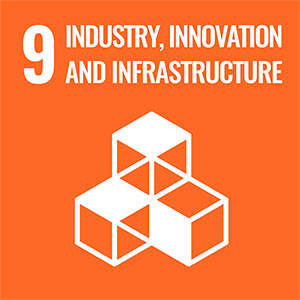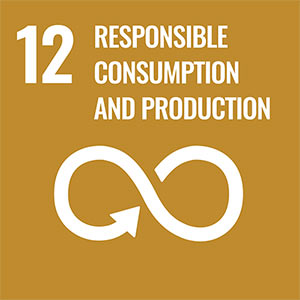MSc Machine Design
The master's programme in Machine Design explores the cutting-edge techniques and principles that drive the creation of the machines that power our world. From concept to creation, you will delve into the intricacies of mechanical systems, learning to analyse, design, and optimise everything from robotics and automotive components to sustainable energy solutions. You will graduate ready to lead in the ever-evolving field of machine design.

Machine Design at KTH
The two-year master’s programme in Machine Design empowers students with advanced skills in designing, developing, and analysing cutting-edge machines and mechanical systems. The curriculum emphasises innovation, sustainability, and the integration of the latest technologies in the field. You will access world-leading education and research, as KTH is ranked 20 among universities worldwide in Mechanical Engineering (QS World University Rankings by Subject 2025).
The programme will prepare you to:
- Master the fundamentals: Build a strong foundation in mechanics, materials science, and engineering design.
- Embrace innovation: Apply cutting-edge design principles to create efficient and sustainable machines.
- Solve complex problems: Develop the analytical skills to tackle engineering challenges and optimise performance.
- Lead the way: Gain the confidence and expertise to drive innovation in the field of machine design.
The first semester introduces various aspects of machine design and strengthens core skills. In the second and third semesters, you will learn how to create, select, dimension, optimise, and verify high-quality, sustainable, and cost-effective technical products using industry-relevant, state-of-the-art tools and methods. You will also gain insights into sustainable design practices through the integration of a life-cycle perspective. You will learn to develop and engineer innovative technical systems and high-performing components and acquire a holistic design approach and specialist knowledge. The programme culminates in advanced project courses that tackle real-life industrial challenges or research problems in close cooperation with our industrial partners and research groups. Throughout the program, traditional lectures, exercises, seminars, assignments, laboratory experiments, and design reviews are used as learning tools.
During the last semester of the programme, you will work on a master's degree project in a research setting at KTH, in industry, or in a university or research institute anywhere in the world to acquire specialisation within a relevant topic.
The programme, combined with KTH's wide range of elective courses, lets you gain deeper knowledge in areas like computational methods, lightweight design, and manufacturing technology. In addition to technical skills, you will also train on your soft skills like problem-solving skills, project management, and professional communication.
This is a two-year programme (120 ECTS credits) given in English. Graduates are awarded the degree of Master of Science. The programme is given mainly at KTH Campus in Stockholm by School of Industrial Engineering and Management, with access to facilities at the Department of Engineering Design and the KTH Prototype Centre. The curriculum is designed, taught, and updated by internationally recognised professors and researchers in collaboration with industry representatives.
Courses in the programme
The courses in the programme cover topics such as machine design, systems engineering, eco-design, and tribology.
Courses in the programme Machine Design
Future and career
The master's programme in Machine Design gives you the competence and ability to identify complex engineering and technical problems and to solve those using state-of-the-art methods and tools. You will be well prepared to work in product development, engineering design, or research within leading companies or academia. Some key industries and sectors for graduates involve vehicles (road, rail, air, off-road), industrial automation (robotics, processes, electronics, tools), and medical engineering (aids for people with disabilities, life-support systems, simulators). Graduates from the programme work at, for example, Scania, Afry, ABB, Saab, Bombardier, Atlas Copco, Volvo Construction Equipment, Volvo Cars, Electrolux, and medical engineering and consulting companies. The programme also opens the way for a possible career in academia, as many graduates go on to doctoral studies at KTH or at other prominent universities in Europe and USA.
Sustainable development
Graduates from KTH have the knowledge and tools for moving society in a more sustainable direction, as sustainable development is an integral part of all programs. The three key sustainable development goals addressed by the master's programme in Machine Design are:



Affordable and clean energy
-
Energy Efficiency: Machine design focuses on creating machines that consume less energy, reducing reliance on fossil fuels and lowering greenhouse gas emissions.
- Renewable Energy: The programme trains engineers to design and improve machinery used in renewable energy generation, such as wind turbines, hydroelectric power systems, and wave energy converters.
Industry, innovation and infrastructure
-
Industrial Advancement: Machine design drives innovation by creating new machines and optimising existing ones, leading to improved efficiency and productivity in various industries.
- Sustainable Infrastructure: The programme enables engineers to develop infrastructure solutions that are resilient, resource-efficient, and environmentally friendly, contributing to sustainable development.
- Sustainable Transportation: Engineering design is vital in creating vehicles and transportation infrastructure that are energy-efficient, reduce pollution and improve urban mobility.
Responsible consumption and production
-
Product Lifecycle and Recyclability: The programme encourages a life-cycle perspective in engineering design with a focus on creating products that are environmentally acceptable, durable, and recyclable, thereby minimising waste and resource consumption.
- Sustainable Manufacturing: The programme fosters an understanding of how to design products through efficient manufacturing processes that minimise waste, optimise resource use, and promote cleaner production methods.
Faculty and research
The Department of Engineering Design coordinates the programme and supplies a majority of the courses. The research at the department is largely directed towards helping the transition to a more sustainable society. The unit in the department which is responsible for this master's programme is the System and Component Design unit.
System and Component Design
The System and Component Design unit focuses on research into mechanical components, component interfaces, and how components integrate into systems and products. This research is geared towards applications in green transport and renewable energy production. Specific areas of interest include ecodesign, developing new components for robust and durable wave energy harvesting, creating components and lubricants for electric vehicle drivelines, and reducing particle emissions from vehicles and transport systems.









